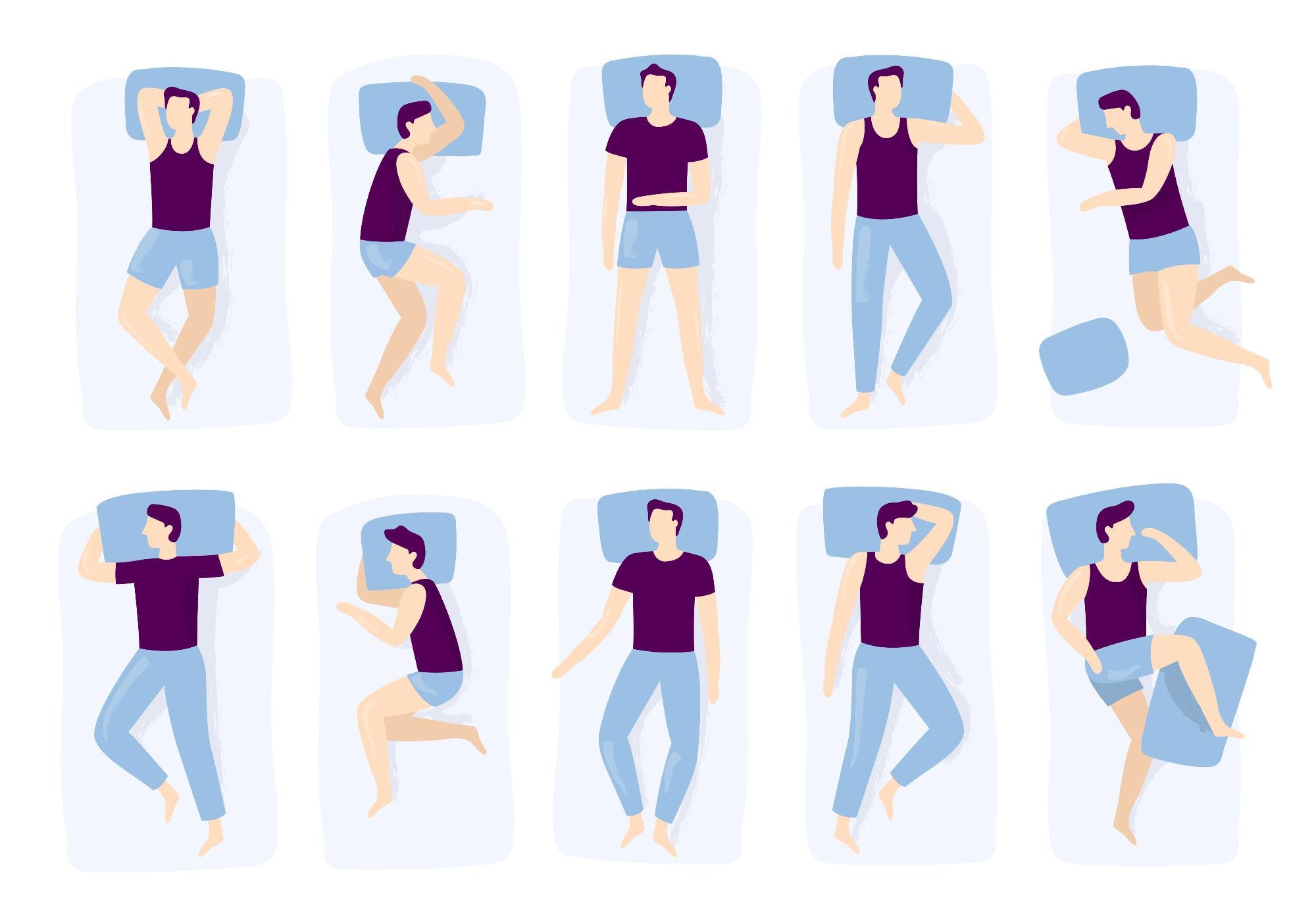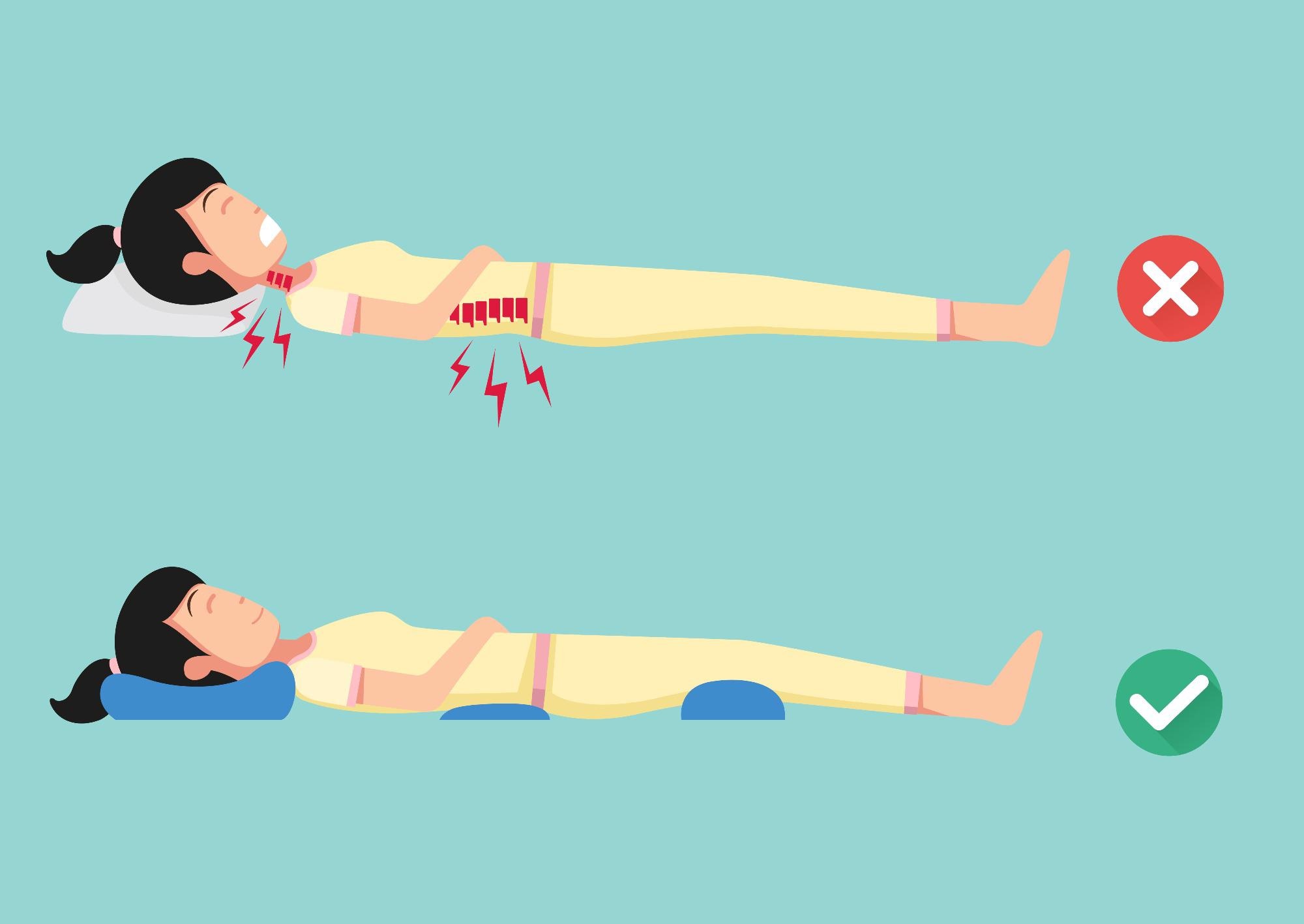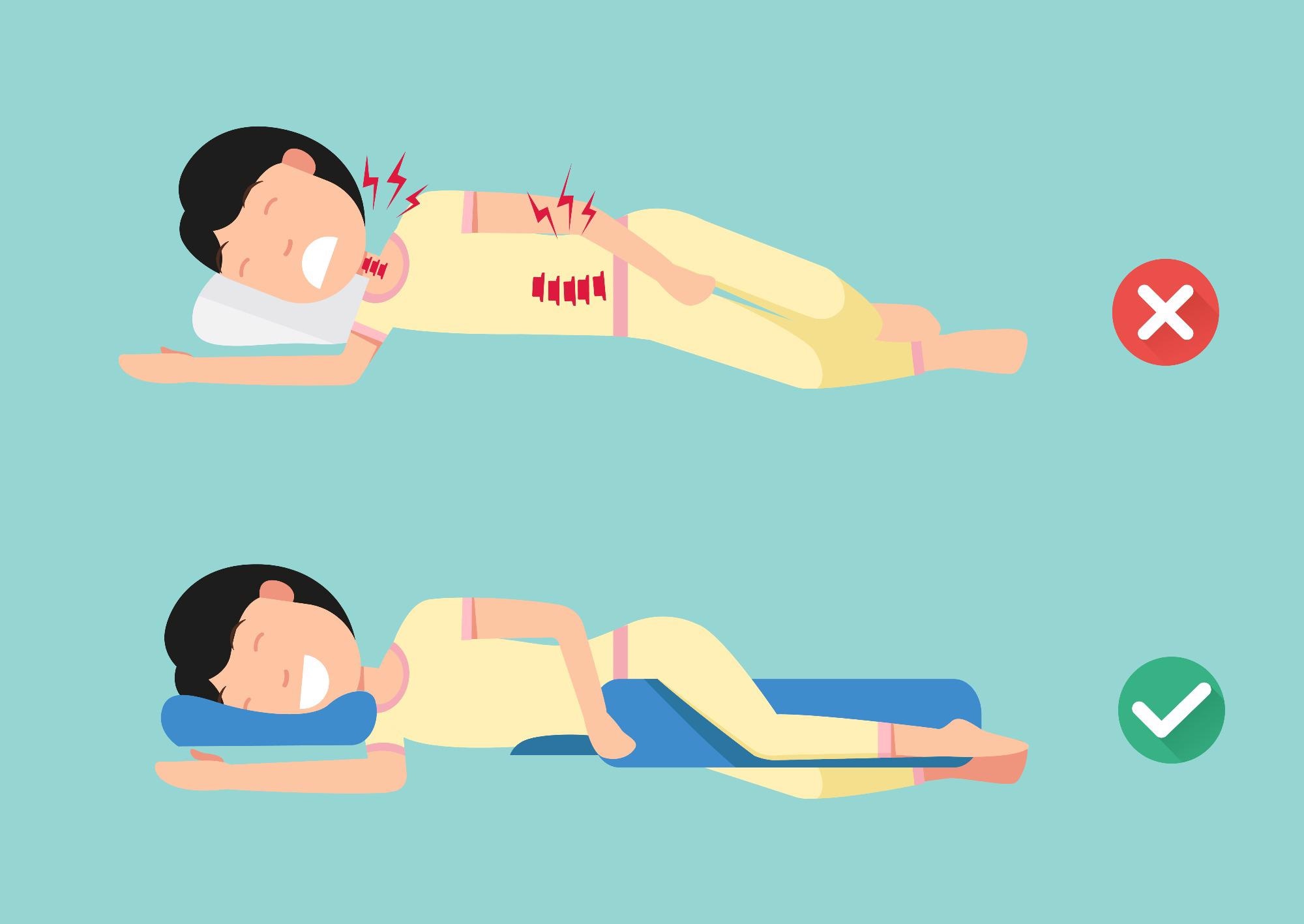A good sleeping position along with a good quality of sleep throughout the night relaxes the spine and muscles. Sleep is needed not just for relaxation but also for mental and physical recovery.

Sleeping positions. Image Credit: Tartila/Shutterstock.com
We all have a favorite position while sleeping which we naturally fall into every night. But can one position be healthier than the other?
Researchers say that our sleeping positions matter and some sleeping positions are more beneficial than others. No one position fits all: the best position for an individual depends on particular health issues. Certain sleep positions are better than others for pregnant women or individuals suffering from sleep apnea, neck pain, back pain, and gastroesophageal reflux disease (GERD).
Who should sleep on their backs?
About 38% of people tend to sleep on their back, making it the second most common position to sleep in. It is also called a supine position. The spine stays elongated and in a natural healthy position while sleeping on the back.
Individuals with lumbar spinal pain and neck pain may find relief in this position with proper support. They may wake with less stiffness and alleviation of pain.
However, the supine position is contraindicated in people suffering from sleep apnoea. This position leads to airway collapse and tends to worsen the symptoms of obstructive sleep apnoea. It also exacerbates snoring.
While it is a much sought-after and natural position it is not advised for pregnant women and older adults. Sleeping on the back also worsens acidity.

Sleeping on your back. Image Credit: jehsomwang/Shutterstock.com
Sleeping on the side
Sleeping on the side is the most common sleep position among adults. About 54% of adults sleep in this position. Its popularity might be because of the inflexibility of the spine as we age. Side sleeping is considered healthy for several reasons because it keeps the spine aligned and relatively neutral. It is even more comfortable for people with lower back pain and neck pain if they support their knees with a blanket in between or a pillow. This helps provide support to the hips and pelvis.
Some individuals find sleeping on their backs uncomfortable and may find relief sleeping on their side. However, they should make sure that the thickness of their pillow is such that it helps keep their neck and spine at the same level.
This position helps individuals with obstructive sleep apnoea as the airways are not as collapsed as when sleeping on the back. People who tend to snore while sleeping may also find relief while sleeping on their side.
Sleeping on the side is also the best position for those suffering from acidity or GERD, especially on the left side. Turning to the left from the back position can instantly provide some relief. Side sleeping on the left is also recommended for pregnant women as the belly puts less pressure on the heart and eases blood flow.
However, the most preferable sleep position might not be the best for individuals suffering from shoulder pain. While sleeping on the side, it should be taken care that the spine is not bent and the fetal position should be avoided. The fetal position is considered to be an unhealthy position as the spine is curved and it may cause undue pain or strain on waking. The fetal position also makes breathing more difficult and puts pressure on the diaphragm.

Sleeping on your side. Image Credit: jehsomwang/Shutterstock.com
Sleeping on the stomach (the prone position)
Only about 7% of the adult population sleep on their stomachs. This position is also called the prone position. It is the unhealthiest position to sleep in. While it helps with snoring it is not advised by professionals.
The spine is the least supported while sleeping on the stomach. Additionally, sleeping in a prone position increases the pressure on the spinal tissues which could lead to pain upon waking. It is also the worst position to sleep in for individuals who have a history of spinal injury as it delays recovery.
The continued strain on the spine while sleeping on the stomach can lead to structural spinal changes so this position should be avoided as much as possible.
Conclusion
Sleep position is a risk factor in a lot of conditions that can be easily eliminated by adjusting it while we sleep. Sleeping on the back has several benefits and can relieve back pain but is contraindicated in pregnant women and people with acidity. Sleeping on the left side is advised for people with GERD and pregnant women. This position also helps individuals with obstructive sleep apnoea as the airway is less collapsed compared to sleeping on the back. Sleeping on the stomach is the unhealthiest position for most.
Some sleep positions are more suited for certain individuals depending on the history of past spinal injuries or conditions. Sleep positions can be modified according to the individual’s particular condition.
References
- Cary, D., Briffa, K., & McKenna, L. (2019). Identifying relationships between sleep posture and non-specific spinal symptoms in adults: A scoping review. BMJ open, 9(6), e027633. https://doi.org/10.1136/bmjopen-2018-027633
- Skarpsno, E. S., Mork, P. J., Nilsen, T., & Holtermann, A. (2017). Sleep positions and nocturnal body movements based on free-living accelerometer recordings: association with demographics, lifestyle, and insomnia symptoms. Nature and science of sleep, 9, 267–275. https://doi.org/10.2147/NSS.S145777
- Suni, E. (2021). Best Sleeping Positions. Sleep Foundation. https://www.sleepfoundation.org/sleeping-positions
- Rosenberg, C. (2019). How Sleeping Position Affects Your Health. Sleep Health Solutions. https://www.sleephealthsolutionsohio.com/blog/healthy-sleeping-position/
Further Reading
Last Updated: Apr 27, 2022